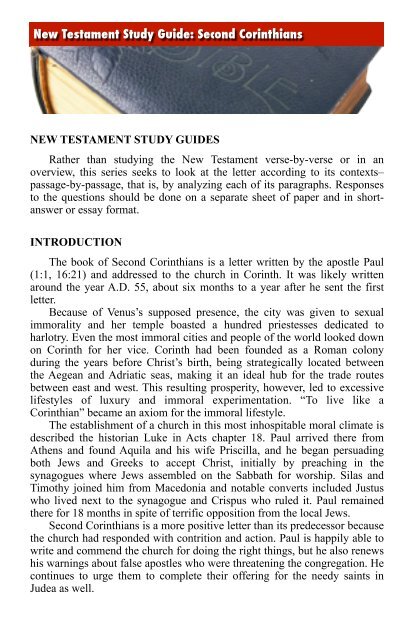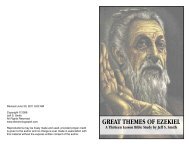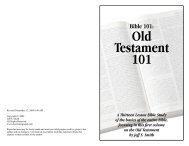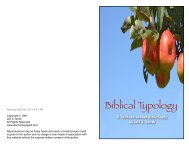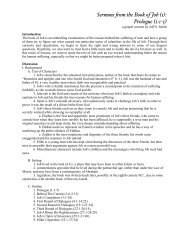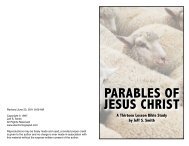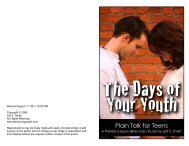New Testament Study Guides - ElectronicGospel
New Testament Study Guides - ElectronicGospel
New Testament Study Guides - ElectronicGospel
Create successful ePaper yourself
Turn your PDF publications into a flip-book with our unique Google optimized e-Paper software.
<strong>New</strong> <strong>Testament</strong> <strong>Study</strong> Guide: Second Corinthians<br />
NEW TESTAMENT STUDY GUIDES<br />
Rather than studying the <strong>New</strong> <strong>Testament</strong> verse-by-verse or in an<br />
overview, this series seeks to look at the letter according to its contexts–<br />
passage-by-passage, that is, by analyzing each of its paragraphs. Responses<br />
to the questions should be done on a separate sheet of paper and in shortanswer<br />
or essay format.<br />
INTRODUCTION<br />
The book of Second Corinthians is a letter written by the apostle Paul<br />
(1:1, 16:21) and addressed to the church in Corinth. It was likely written<br />
around the year A.D. 55, about six months to a year after he sent the first<br />
letter.<br />
Because of Venus’s supposed presence, the city was given to sexual<br />
immorality and her temple boasted a hundred priestesses dedicated to<br />
harlotry. Even the most immoral cities and people of the world looked down<br />
on Corinth for her vice. Corinth had been founded as a Roman colony<br />
during the years before Christ’s birth, being strategically located between<br />
the Aegean and Adriatic seas, making it an ideal hub for the trade routes<br />
between east and west. This resulting prosperity, however, led to excessive<br />
lifestyles of luxury and immoral experimentation. “To live like a<br />
Corinthian” became an axiom for the immoral lifestyle.<br />
The establishment of a church in this most inhospitable moral climate is<br />
described the historian Luke in Acts chapter 18. Paul arrived there from<br />
Athens and found Aquila and his wife Priscilla, and he began persuading<br />
both Jews and Greeks to accept Christ, initially by preaching in the<br />
synagogues where Jews assembled on the Sabbath for worship. Silas and<br />
Timothy joined him from Macedonia and notable converts included Justus<br />
who lived next to the synagogue and Crispus who ruled it. Paul remained<br />
there for 18 months in spite of terrific opposition from the local Jews.<br />
Second Corinthians is a more positive letter than its predecessor because<br />
the church had responded with contrition and action. Paul is happily able to<br />
write and commend the church for doing the right things, but he also renews<br />
his warnings about false apostles who were threatening the congregation. He<br />
continues to urge them to complete their offering for the needy saints in<br />
Judea as well.


